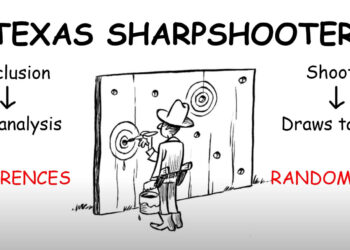In this XOXO talk, internet host, podcaster and writer Veronica Belmont talks about the meme that has taken over her life. Seven years ago, as part of an online show, she made a silly joke, which has been transformed into a widely shared .gif file. No matter what else she does, this one .gif, now taken completely out of context, continues to dominate every mention of her name online, every appearance she makes.
Welcome to the internet, a medium that never forgets, and something that moves faster than our cultural norms can adapt. Hence there are so many people who now have that embarrassing moment permanently preserved for all to see and mock. Though the internet has brought us many wonderful things, one thing it seemingly lacks, is empathy.
Belmont suggests that the lack of empathy we exhibit online may come from the speed at which we react online, the quick-hit, strive-to-be-first attitude that requires an immediate response, which at least one study has shown to reduce empathy. She also makes an interesting suggestion about the differences in how we behave when speaking aloud as opposed to typing statements. This seems very relevant to the world of academia — compare the tone of comments/questions asked aloud at a meeting to those posted online for example.
These shifting societal norms, as well as permanent availability of past mistakes hit particularly hard for researchers, given how much of the research career structure is reputation-based.
Discussion
7 Thoughts on "The Internet's Permanent Memory: Why Empathy is More Important Than Ever"
As a young field manager I was asked in a meeting how many copies of a book would be sold in the region. I said I did not know. My bosses boss said to my boss that I didn’t know what was going on and that he should either train me or fire me.
At lunch my boss said don’t eat just go to your room. After lunch when you are asked how many copies of a book would be sold just make up a reasonable number that is what everyone else is doing. Now he said, if they ask you to write down a number make it very low…..
I learned that putting something on paper is like putting something on the web, people will call you on it!
“a more mindful internet” lovely finale – thanks for sharing
I would take it a step further and say that the Internet not only lacks empathy, it can be downright nasty, brutish, and long-lived – an unpleasant Hobbesian turn. As David Wojick notes, it becomes a public record and it can follow you for always. What makes it strikingly unpleasant is that a thoughtless casual remark, when posted on a social platform can have devastating personal results – people have lost jobs because of it: http://www.nytimes.com/2015/02/15/magazine/how-one-stupid-tweet-ruined-justine-saccos-life.html?_r=0
Fortunately in the world of confidential and private peer review, the impact of a critical review is quite contained, but this is a lesson to keep in mind.
Excellent point. I have used the example you quoted as well in one of my marketing lectures (poor example of social media use gone wrong). I do think that all of us are guilty of having poorly-considered thoughts at times. The difference is putting them online, and thus making them part of the public record. The speed at which social media moves can make people careless, and overshare. Or share without thinking through all possible outcomes. Or simply… because more people are around to observe and scrutinize our thoughts, the likelihood of someone taking things out of context or even countering with a provocative view are high.
The Internet is not a person, so it cannot lack empathy. No doubt some of the billion or so users lack empathy, but the fraction may be small. There are, after all, nasty people in the world, people who seem to think that nastiness is a form of personal power. How fast they type is probably irrelevant.
The greatest fraction of nastiness is likely found in the political domain, because politics often seems like a realm of anger. The extreme case is when there are resident commentors who openly despise each other, an all too common occurrence.



